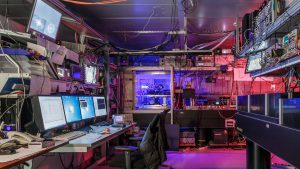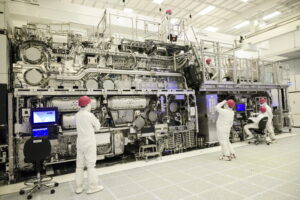Greece on the Way to Create its First Innovation Hub

Greece had its own way of celebrating the holidays – by starting the process for the creation of its first innovation hub as part of its goal to become a science and tech destination in the SEE region. With the aim to stimulate the development of synergies between science and entrepreneurship, the project envisions the launch of a multipurpose complex that will host research centers and startups. According to the business plans of the Greek Development and Investment Ministry, the initiative will cost around €100m and will bring about the creation of 2000 jobs.
Innovation meets history
The Innovation Hub will be located in the facilities of a centrally-located abandoned industrial plant in Athens, which spans 17,900 square meters and has not been used since the 1980s. The initiative, which will be carried out through a public-private partnership, is warmly welcomed by the Greek PM, Kyriakos Mitsotakis, as it aligns with the strategy of the current government to stimulate the economy and transition to a new high added value production model.
“I believe that in some years when we compare what there was and what is going to be created, we will have every reason to be satisfied that we pressed ahead so quickly with this flagship effort in the area of innovation, which is essentially the bridge that our country must cross in order to conquer the future,” stated Mitsotakis on his tour of the site. The plan of the Investment Ministry is to finish the project in a year and a half and to retain some of the features and historic buildings of the site, which are connected with the history of Greek industrial development.
Reaching for the Brain Gain
The initiative has one more goal – to reverse the brain drain trend and encourage the high-skilled and educated Greeks who had left the country to return back and take up the newly created jobs in the fields of science and technology. The long-term vision of Greece is to attract big players and corporations from foreign startup ecosystems to move their operations in the country. The Greek government has already reduced taxes by 50% to attract foreigners and has promised tax benefits to the Greeks who decide to return home. The plan seems to be working as there are already examples of highly-qualified people and visionary companies that have begun operations in Greece such as Microsoft, which is investing €1b for the creation of new data centers and establishing a Microsoft Cloud region in Greece, and Pfizer, which has opened a digital hub in Thessaloniki for the development of new drugs and digital platforms for doctors and patients based on data analysis and AI.
Recently, the creator of Google Maps, Lars Rasmussen, announced that he will be moving to Greece in January 2021 with his Greek wife – the high-tech executive Elomida Visviki, to work on the development of his startup Weav, which will be the only app that automatically keeps music in sync with your footsteps in real-time. “Greece lost 500,000 big brains in the wake of the financial crises a decade back. Now making an impressive and concerted effort to entice them back, we will hopefully attract an additional 500,000 non-Greek brains to live & work in paradise,” notes Rasmussen.





























